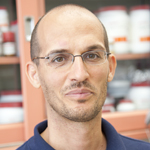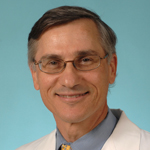A team of nutrition researchers and urologic surgeons at Washington University School of Medicine in St. Louis and the Siteman Cancer Center is conducting two studies to investigate a potential link between cancer and excess protein in the diet.
One study targets men with prostate cancer to see whether lowering daily protein intake may slow the growth of cancer before surgery to remove the prostate gland. The second study focuses on men who have had prostate cancer surgery but still have elevated PSA (prostate-specific antigen), a protein produced by prostate cells. Normally men have low levels of PSA in their blood, but prostate cancer can increase the PSA reading. The researchers want to know whether reducing dietary protein can lower prostate cancer risk.
“The typical American diet includes nearly twice the recommended daily allowance for protein, which should be about 10 percent of calories,” says Luigi Fontana, MD, PhD, principal investigator for the studies. “We don’t want to reduce protein below recommended levels, but we want to see whether cutting protein to what’s recommended may improve the health of these patients.”

Fontana, research associate professor of medicine at Washington University and senior investigator at the Istituto Superiore di Sanità in Rome, Italy, and co-principal investigator Gerald L. Andriole, MD, the Robert K. Royce Distinguished Professor and chief of urologic surgery at the School of Medicine and Barnes-Jewish Hospital, think something in the Western lifestyle puts men at risk for prostate cancer. Both say that high levels of dietary protein may be an important factor.
“Certain cancers — like breast cancer, prostate cancer and colon cancer — are a bigger problem in developed countries than in other parts of the world,” Fontana says. “Past clinical studies showed that Japanese and American men typically had microscopic evidence of cancer cells in the prostate, but the American men were more likely to die of the disease. In recent years, that gap has closed, and we think it’s possible that the lifestyle and diet that may have put American men at risk now may be increasing the risk for Japanese men.”
Fontana has focused on dietary protein because it appears to be important in regulating IGF-1 (insulin-like growth factor 1), which has been linked to the risk of developing some cancers. In addition, protein seems to influence other mechanisms, such as inflammation and the mTOR (mammalian target of rapamycin) pathway that also appear to be related to cancer risk.
For the pre-surgery study, researchers are seeking otherwise healthy men with prostate cancer. One month before surgery, half the men will be placed on a diet that delivers only the recommended amount of protein. The rest will continue to eat their typical diet. Once patient prostate glands have been removed, researchers will look for differences in cancer cells under the microscope. They’ll also study the prostate following surgery to look for differences in IGF-1, mTOR, inflammation and other pathways.

Andriole
For the other study, researchers are recruiting men who already have had prostate-removal surgery but who continue to have elevated PSA levels. Half of these men will eat a diet in which they get about 10 percent of total calories from protein. The others will continue to eat a diet higher in protein. Both groups will be followed for one year.
“Men with detectable PSA levels after prostate surgery may still have prostate cancer cells in their bodies,” Andriole says. “We’d like to see if limiting protein intake will lower PSA, which would suggest that we may be able to influence the course of their cancer.”
To be eligible for that study, volunteers must be relatively healthy, have detectable PSA levels after prostate removal surgery, be willing to participate in the dietary intervention and come to Washington University Medical Center for follow-up visits for one year. Those who qualify will visit Washington University School of Medicine for two screening visits and a baseline visit before beginning the one-year study. Follow-up testing will occur every three months. All medical and dietary assessments are provided free of charge.
For more information about either study, contact Dana Romo at (314) 362-2399 or e-mail dromo@dom.wustl.edu.
Washington University School of Medicine’s 2,100 employed and volunteer faculty physicians also are the medical staff of Barnes-Jewish and St. Louis Children’s hospitals. The School of Medicine is one of the leading medical research, teaching and patient care institutions in the nation, currently ranked fourth in the nation by U.S. News & World Report. Through its affiliations with Barnes-Jewish and St. Louis Children’s hospitals, the School of Medicine is linked to BJC HealthCare.